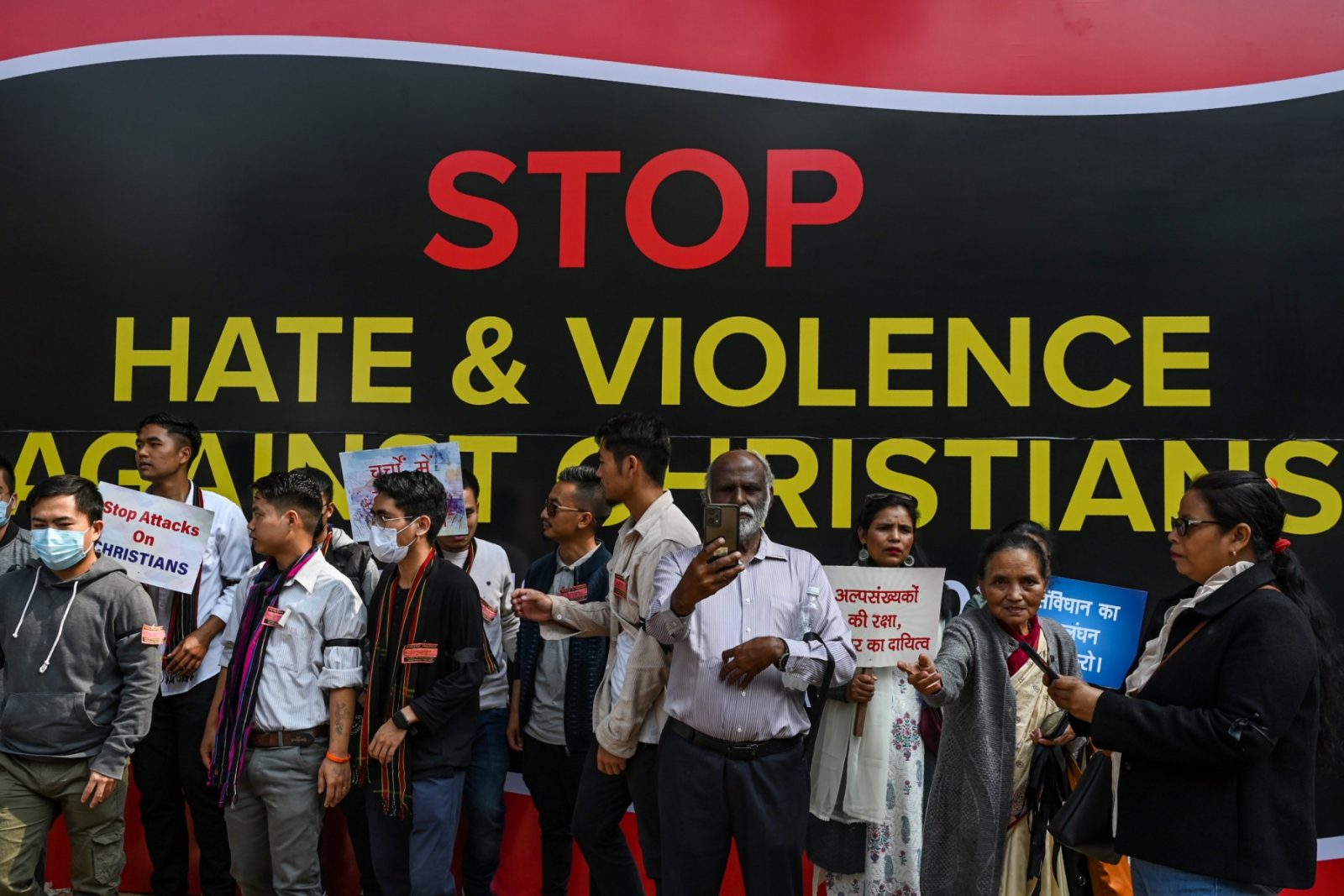In India, the cries for justice, are becoming louder and longer. They come from different segments of society and particularly from those who continue to be exploited and excluded. These cries are heart-rending. Anyone with an iota of conscience will hear them. The sad and tragic reality is that these cries will remain unheard, those who need to hear these cries and to respond to them have deadened their ears and hardened their hearts.
Junaid and Nasir cry for justice. These two Muslim men were allegedly kidnapped, lynched, and set ablaze by a Hindutva mob in Haryana’s Bhiwani district on February 16. They were residents of Gopalgarh village in Rajasthan’s Bharatpur. The incident happened 100 kilometers away from their village, and the Hindutva group had accused the Muslim men of cow smuggling.
Junaid and Nasir were apparently abducted from the forests of Piruka and taken them to Barwas village in Bhiwani, where they were burned alive. Family members also said that they were killed by members of the Hindutva outfit Bajrang Dal and that the Bajrang Dal leader Monu Manesar was behind the gruesome killing. Though Manesar and some others have been arrested, there are others on the street demanding they be released immediately, providing legitimacy to their heinous crime.
Darshan Solanki cries for justice. This 18-year-old Dalit student was studying at the IIT in Mumbai. Originally from Ahmedabad, his father, Rameshbhai, works as a plumber and his mother, Tarlikaben, as a domestic worker. On February 12, Darshan apparently committed suicide. He did not leave any note. However, most of his fellow students and others who knew him have gone on record saying that he faced severe discrimination and harassment because of his caste background. Many regard it as an “institutional murder.” It was just three months since he had entered the portals of India’s premier educational institution. The death of Darshan a Dalit is not a one-off case. There are many more.
Ashaben (name changed) cries for justice. She is still a minor, a 17-year-old Adivasi from Jharkhand. She was hired as a domestic worker by a well-off couple who abused and ill-treated her for the five months. On being rescued, she said, “They hit me with sticks, rope… they hit me with a hot iron tong and used a blade to brand marks on my arm and lips. She would burn paper and light a matchstick and poke me with them…. On one occasion, they tried to strangle me and threatened to kill me, I was given only one meal to eat at night, a small bowl of rice, and often ate leftover food from the dustbin since I was hungry for long periods…. Often, I slept on the floor in the drawing room… without any clothes. She tore the clothes that I had brought along. He disrobed me and hit me with a stick on my private parts.”
There are millions of Ashabens in the country today. Their employers get away with this abuse because of their wealth, their status, proximity to the powerful and of course, lack of accountability to anyone.
The victim -survivors of the Gujarat Carnage of 2002 cry for justice. In a few days from now (27/28 February) it will be yet another anniversary of those infamous days in Gujarat. It was undoubtedly the blackest chapter in post-independent India. Thanks to the painstaking efforts and the relentless pursuit of justice by several individuals and groups, in accompanying the victim-survivors, justice has been delivered in some instances.
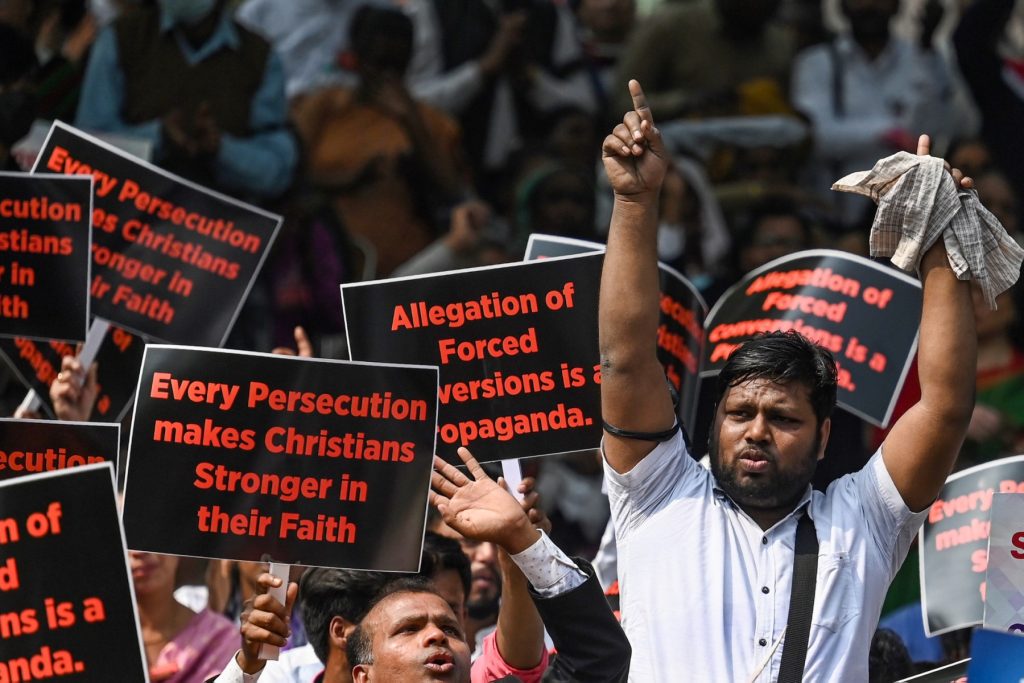
The truth, however, is that those responsible, the masterminds, the kingpins have still not been brought to book despite authentic and incontrovertible evidence to prove their direct involvement and even complicity in those heinous crimes which engulfed Gujarat for week after week those terrible times. They still roam the streets with impunity and have manipulatively covered themselves with the cloak of immunity.
Can the world ever forget the suffering and trauma of Bilkis Bano, Zakhia Jafri, Rupa Mody and hundreds of others who have lost their loved ones? Like the holocaust, during the Nazi regime, the Gujarat Carnage of 2002 will forever be etched in the memory of humankind, it will always remain on the radar, until perhaps the cries for justice are heard.
Bilkis Bano cries for justice. Yes, for herself, for her loved ones and for all women who are victims of a heartless, brutal, patriarchal society. Today she is unable to accept the ignominy that the eleven perpetrators of that unacceptable violence have granted remission from their prison sentences and are scot-free.
In pain she says, “All the four men of my family were killed brutally. The women were stripped naked and raped by many men. They caught me. My three-year-old daughter, Saleha, was in my arms. They snatched her and threw her into the air with all their might. My heart broke as her little head shattered on the rocks. Four men caught me by the arms and legs and many others entered me one by one. When satisfying their lust, they kicked me and beat my head with a rod. Assuming that I was dead they threw me into the bushes. Four or five hours later I regained my consciousness. I searched for some rags to cover my body but couldn’t find any. I spent a day and a half on a hilltop without food or water. I longed for death. Finally, I managed to find a tribal colony. Declaring myself as a Hindu I sought shelter there. The men who attacked us used foul language. I can’t repeat it ever. In front of me they killed my mother, sister and 12 other relatives. While raping and killing us, they were shouting sexual abuses. I could not even tell them that I was five months pregnant because their feet were on my mouth and neck. I have known the men who raped me for many years. We sold them milk. They were our customers. If they had any shame, they would not have done this to me. How can I forgive them?”
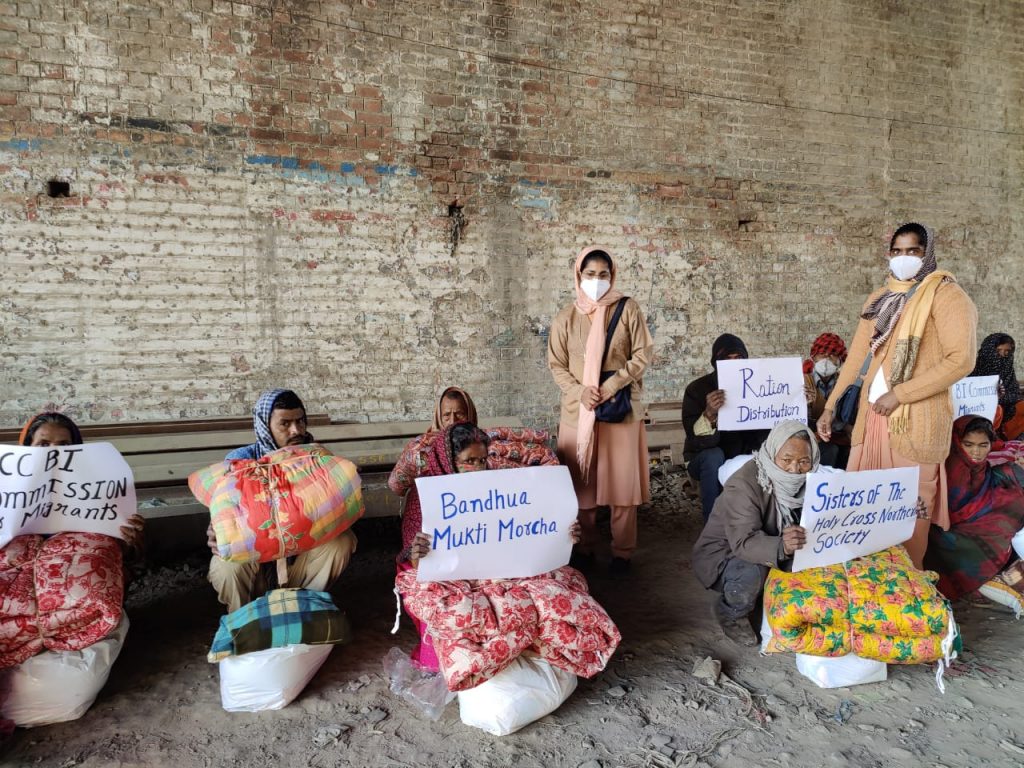
Migrant workers cry for justice. There are an estimated400 million people work in India’s informal sector, on low daily wages and with no contract, pension, paid holidays, or health benefits and above all, poor working conditions. The vast majority are migrant workers. They are scattered all over the country. Migrant workers normally cannot defend themselves. When they go to another state, they don’t even speak the local language. No one inspects the premises to check working conditions are safe. They don’t even feature in the records of the local state government. They are invisible. The powerful images of migrant workers suffering when lockdown was announced in 2020 will remain etched in one’s memory forever. Besides, in the height of the COVID pandemic the government passed the four labor codes, which most people feel are violative of the rights of workers and favor the employers particularly, the corporate sector.
Christians cry for justice. It has never been as bad as this for this miniscule minority. Christians are attacked and persecuted with frightening regularity. Churches and sacred objects are vandalized and desecrated. False cases are foisted on Christian pastors and those assembled for prayer. On February 19, more than 15,000 Christians assembled at the Jantar Mantar in New Delhi for a prayerful and peaceful protest. Speaker after speaker lambasted the current regime for their open instigation to their ilk to harass, intimidate, and attack the Christians. Complete legitimacy is given to fascist outfits like the Vishwa Hindu Parishad, the Bajrang Dal and the Akhil Bhartiya Vidya Parishad (ABVP), the student wing of the Sangh Parivar, to storm Christian institutions demanding that Hindu gods and goddesses be enshrined and even venerated in Christian institutions.
On February 20, such an incident took place at St Mary’s School, Amreli Gujarat. The goons hounded and harassed the principal, staff, and students for most of the day. Neither the government educational authorities nor the local police, think it fit to halt the goons in their steps. In several other instances, Sangh Parivar outfits have been threatening and browbeating Christians, with false allegations like “forced conversions!”
Minorities cry for justice. Christians, yes, but on a much larger scale, the Muslims are demonized, denigrated and discriminated against. The classic examples in recent years are the Citizenship Amendment Act, The National Register of Citizenship, the abrogation of Articles 370 and 35A about Kashmir’s special Constitutional status, the so-called “anti-conversion” laws in several states are all designed and directed toward the systematic targeting of the minorities in the country.
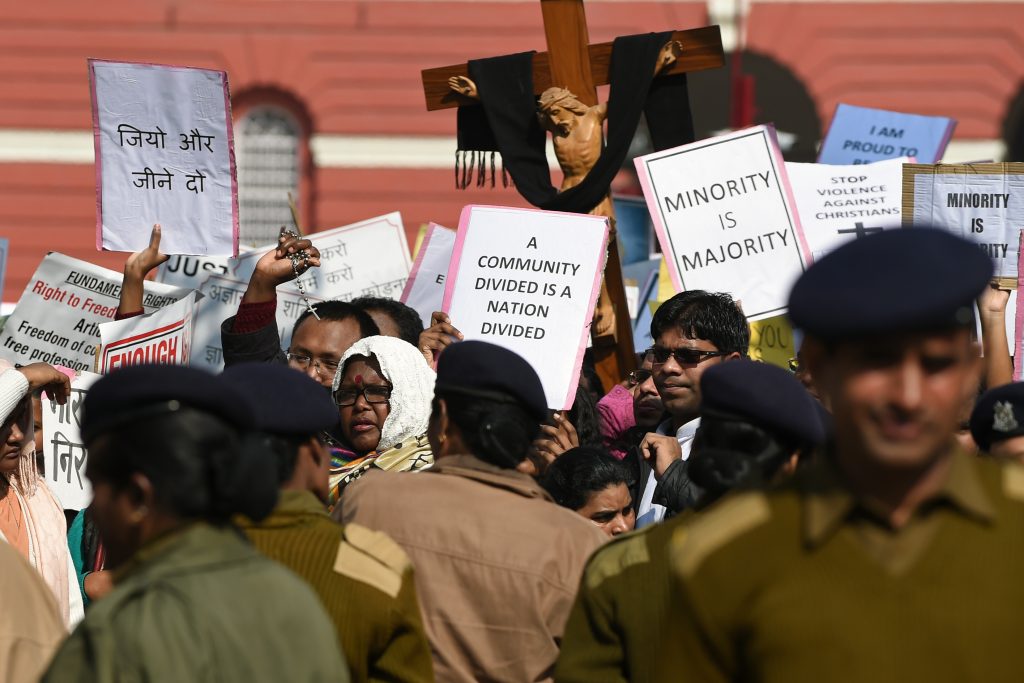
There is much more: what minorities and other vulnerable groups eat, wear, see and read has become the bane of several from the majority community. Livelihoods of minorities are destroyed; Government employment is not given to someone from a minority community even if the person meets the required competence and has the necessary qualifications.
Venomous hate speeches against the minorities have become the order of the day. Those who spew them, do so with gay abandon- because they know that no one will touch them.
Voters cry for justice. In the run-up to the Karnataka Assembly elections, thousands of eligible voters, mainly Christians and Muslims, find their names mysteriously missing from the electoral rolls. Their names have been deleted. This is a travesty of justice. Elections are also due in three North- eastern states, too. One has witnessed in almost every recent election how the real issues of the people, their livelihood, employment opportunities, food security, environmental justice, habitat are bypassed and they are polarized on religious, ethnic and caste issues. Voters are coerced /threatened to vote for a particular party/candidate. The recent elections in Gujarat were a sham on Democracy; mafia of the ruling regime took away the voting ids (EPIC) from several voters prior to the elections and the votes were exercised on their behalf. Some were given money to do so or to vote for a particular candidate/party. Beef and liquor and other ‘gifts’ were freely distributed. Selected EVMs were manipulated before and after the elections.
Human Rights defenders cry for justice. Thanks to those who have had the courage to stick their necks out for the poor, exploited and other vulnerable sections of society that reality is still on the canvass. Many human rights defenders are still paying the price for their courageous and selfless deeds. The likes of Vernon Gonsalves, Arun Ferreira and others are still languishing in jail, in the Bhima-Koregaon conspiracy case. The struggle to prove the innocence of Fr Stan Swamy, who was institutionally murdered on July 5, 2021, still continues. Teesta Setalvad, R.B. Sreekumar and Sanjiv Bhatt are hounded and harassed, with fabricated cases foisted on them. It is not easy for them and for their families, the wheels of justice indeed move extremely and painfully slowly. They however are resolute, determined to fight for the cause of justice – till the very end.
Freedom of the press, of speech and expression cherishers, cry for justice. In a country which is dominated by ‘godified’ media – it is not easy to speak truth to power. On February 2, journalist Siddique Kappan was released on bail after spending 846 days (28 months) in jail. After being released on from a Lucknow prison, Kappan told the media that he had no idea why he was implicated wrongly in a case and jailed. The fact however was that he was on his way to Hathras in UP where a young Dalit girl was gang-raped by the powerful belonging to the ruling regime.
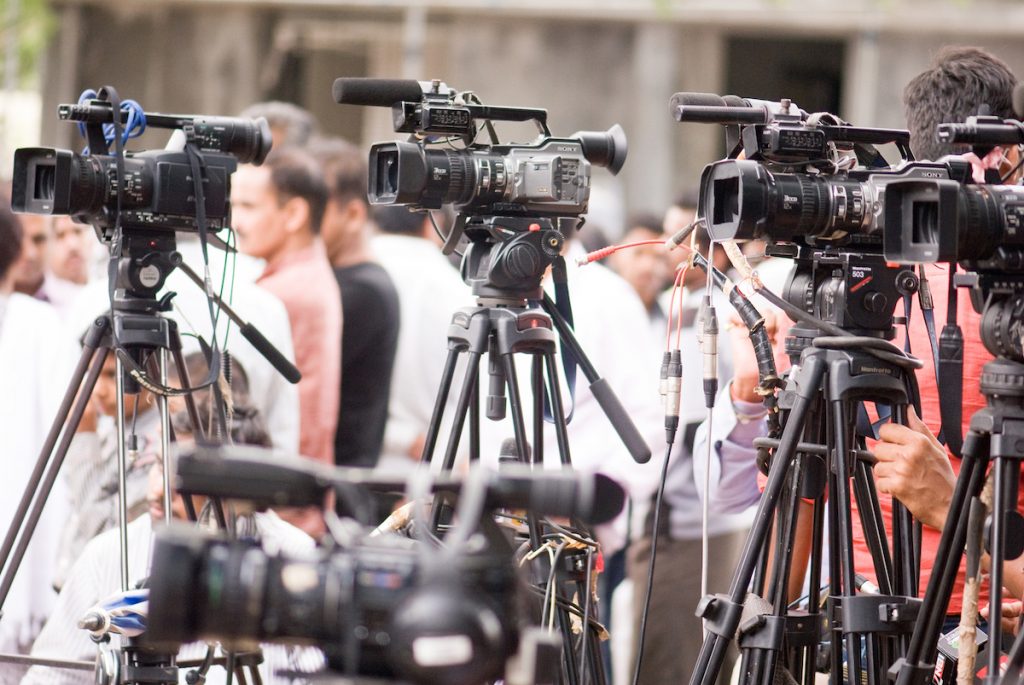
Any media house (be it print or electronic), if it takes on the government, are denied government advertisements (revenue) and have the ED , the CBI, Income-tax , NIA and other statutory bodies ( who have become pliable instruments in the hands of a vindictive regime) breathing on them, raiding them and creating untold suffering on them.
The raids on the BBC offices in Mumbai and Delhi recently are a classic example of this. A free press is sine qua non in a democracy and world leaders and governments have taken on India on this score. Besides the banning of the BBC film on Modi, which is accurate, authentic, objective after faultless research, is clearly an example of how the government wants to throttle freedom of speech and expression. A churlish attitude of a fascist regime that is too frightened to face the truth.
Today India cries for justice. Junaid and Nassir, Darshan and Ashaben, the victim survivors of the Gujarat Carnage of 2002, Bilkis Bano, Rupa Mody and Zakhia Jafri, the migrants and laborers, the minorities, Muslims, Christians and others, human rights defenders, Vernon, Arun, Teesta, Sreekumar, Sanjiv, and many others, voters and those who believe in the freedom of speech and expression. There are many more crying: the fisherfolk of Kerala, those who have been displaced by megaprojects and the mining mafia; those who are concerned about the ecology and cry for environmental justice; the LGTBQIA community; the small farmers and land-holders; the small investors who have fallen prey to a corrupt regime which has been hijacked by crony capitalists like Adani. There are many more. The list is endless. Martin Luther King Jr. once famously said that “injustice anywhere is a threat to justice everywhere.” Injustice today abounds in India. Until such time, that the cause of justice is served and made real to every segment of society, the cries for justice will continue to grow shriller.
But is anybody listening?
Father Cedric Prakash, SJ is a human rights, justice, reconciliation and peace activist/writer. Contact: [email protected]

